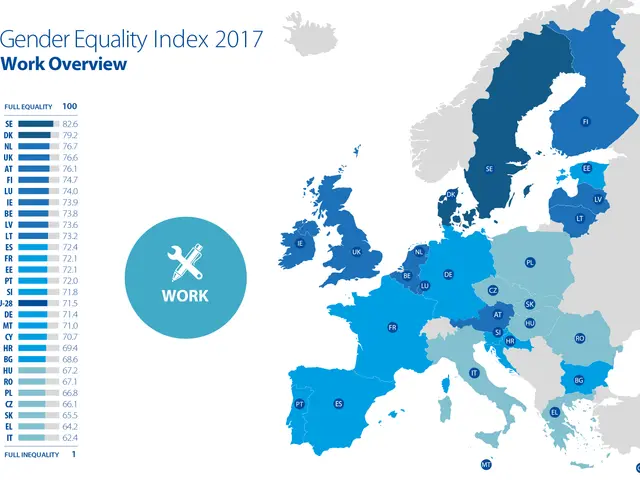Important Developments in Data Security and Artificial Intelligence for Hotel Management: Insights and Predictions
Cybersecurity and AI Trends Reshaping the Hospitality Sector
In the modern era of hospitality, hoteliers are grappling with a dual-edged challenge: embracing technology to enhance guest experience while safeguarding digital infrastructure from ever-evolving cyber threats. As the sector becomes increasingly digitized, cybersecurity and artificial intelligence have become indispensable tools in the pursuit of a secure and efficient hotel operation.
Hotel management systems, mobile apps, contactless check-ins, and digital key cards are popular targets for cybercriminals due to the troves of personal data they store. Experts report that hotels face millions of attack attempts annually, with hackers seeking to exploit vulnerabilities such as eavesdropping on WiFi networks, executing phishing attacks on staff, or infecting systems with ransomware. To combat these threats, hoteliers must prioritize encryption, two-factor authentication, access control, and continuous monitoring of systems. Third-party assessments can uncover hidden weaknesses for optimal security.
Artificial intelligence has transformed the hospitality industry, streamlining tasks ranging from booking to checkout. Chatbots and virtual assistants manage front desk services and customer support, while machine learning algorithms personalize offerings based on guest behavior. Behind the scenes, AI also plays a crucial role in dynamic pricing models and housekeeping systems for improved staff scheduling and streamlined operations. The impact is evident, with hotels reporting increased guest loyalty, better resource management, and reduced costs.
Zero Trust, a new cybersecurity architecture, is gaining traction as the standard for hotel defense. This model presumes that devices, users, and networks are not trustworthy until authenticated. By segmenting networks, enforcing identity authentication, and limiting user access based on roles, hotels can minimize the damage in case of cyberattacks. Zero Trust principles also apply to third-party vendors and cloud applications.
In light of these advancements, cybersecurity awareness training has become essential. People within the organization often represent the weakest link in cybersecurity, with human error leading to breaches through phishing emails, weak passwords, or unsafe browsing behavior. Hotel staff must be continuously trained to detect and report suspicious emails and maintain a culture of cybersecurity accountability.
Data protection laws play a significant role in earning brand trust. Hoteliers must comply with legislation like GDPR in Europe and the CCPA in California to disclose data usage, obtain explicit consent, and offer control to guests over their personal information. Integrating privacy-by-design principles when deploying technology ensures that compliance is not an afterthought.
Hotels rely on third-party vendors for various services, creating additional cybersecurity risks. Hotels must conduct due diligence before onboarding vendors, reviewing service level agreements, security certificates, and compliance records. Continuous monitoring of third-party connections ensures partners adhere to hotel security policies.
By implementing predictive analytics in incident response, hotels can go beyond reactive measures. Machine learning platforms can forecast potential threats based on network activity and system performance. Advanced platforms help hotels respond quicker to threats and minimize downtime, while detailed logs of system changes offer compliance benefits.
The future of the hospitality sector hinges on hotels' ability to adapt to emerging trends in cybersecurity and artificial intelligence. Proactively adopting innovative solutions for cyber defense and personalization positions hotels as modern, reliable, and prepared, securing both operational efficiency and guest confidence.
- Machine learning algorithms in the hospitality sector are used to personalize offerings based on guest behavior, enabling better resource management and reduced costs.
- In cybersecurity, the Zero Trust architecture is becoming the standard for hotel defense, minimizing damage in case of cyberattacks.
- Due to the troves of personal data they store, hotel management systems, mobile apps, and digital key cards are popular targets for cybercriminals.
- With artificial intelligence transforming the fashion-and-beauty industry, personalized shopping experiences and virtual try-ons are becoming common trends.
- In the finance world, businesses are leveraging artificial intelligence and machine learning for predictive analysis in sports-betting to gain an edge over competitors.
- To combat cybersecurity threats, hoteliers must prioritize encryption, two-factor authentication, access control, and continuous monitoring of systems.
- As travelers seek unique experiences, the travel industry is adopting AI-powered recommendations to curate tailored experiences, from food-and-drink pairings to home-and-garden tours.








